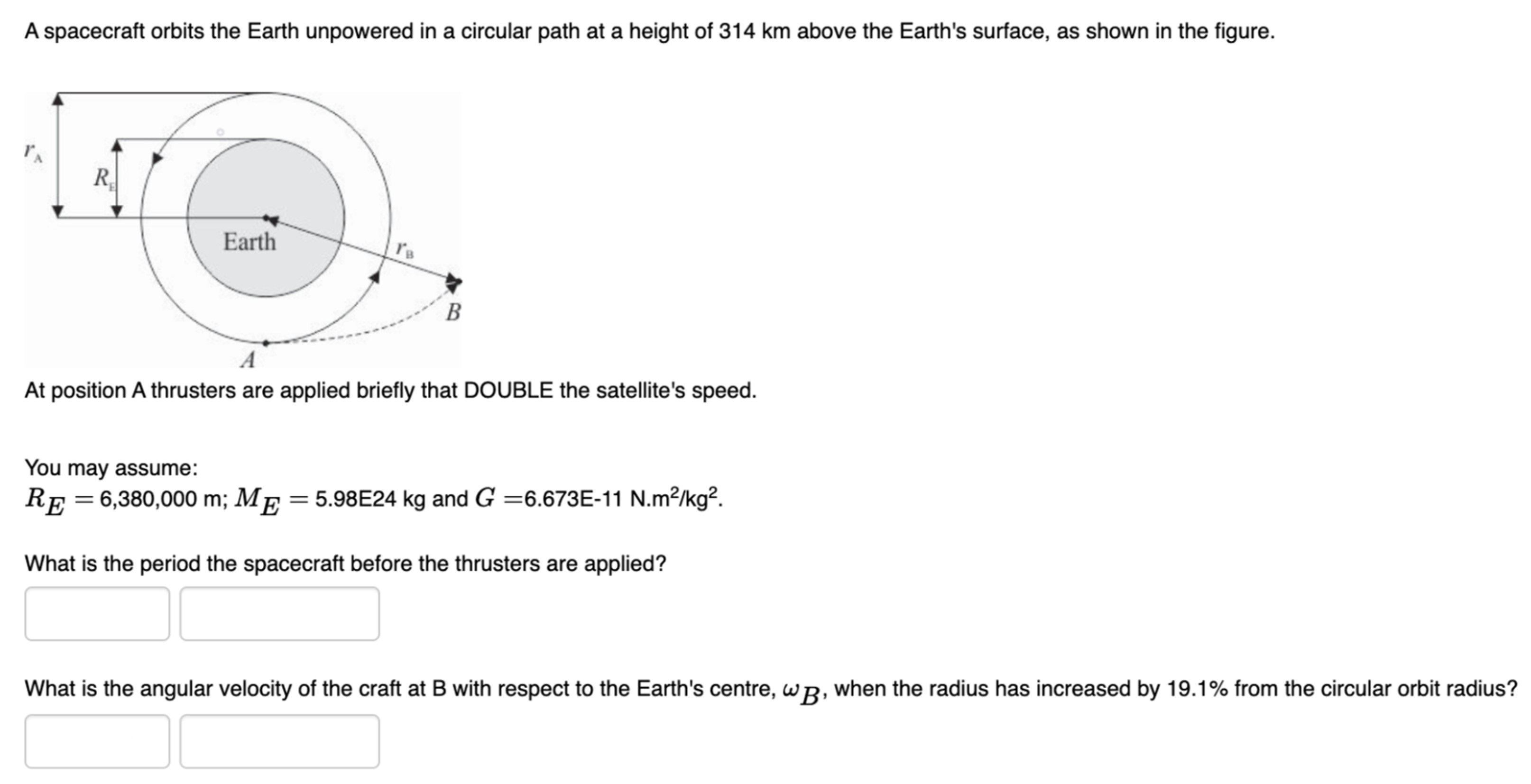A spacecraft orbits the Earth unpowered in a circular path at a height of 314 km above the Earth's surface, as shown in the figure. At position A thrusters are applied briefly that DOUBLE the satellite's speed. You may assume: RE = 6,380,000 m; ME = 5.98E24 kg and G = 6.673E−11 N.m2/kg2. What is the period the spacecraft before the thrusters are applied? What is the angular velocity of the craft at B with respect to the Earth's centre, ωB, when the radius has increased by 19.1% from the circular orbit radius?
